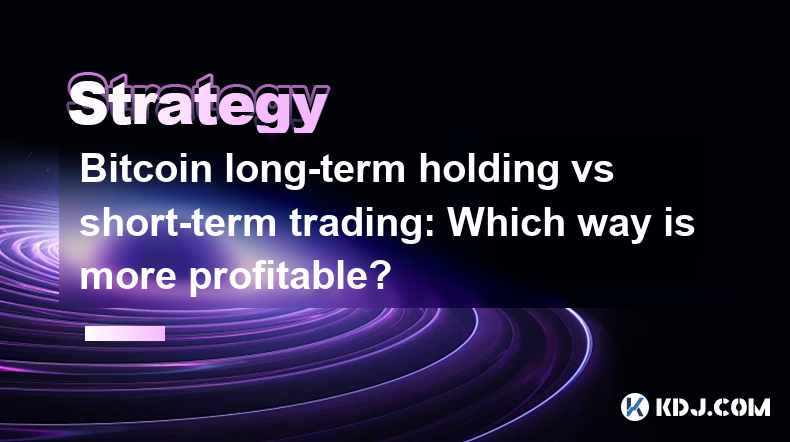-
 Bitcoin
Bitcoin $83,691.5577
-0.55% -
 Ethereum
Ethereum $1,893.7437
-1.91% -
 Tether USDt
Tether USDt $1.0001
0.01% -
 XRP
XRP $2.3174
-3.56% -
 BNB
BNB $602.2365
-1.62% -
 Solana
Solana $128.6745
-4.01% -
 USDC
USDC $1.0000
0.01% -
 Dogecoin
Dogecoin $0.1706
-2.41% -
 Cardano
Cardano $0.7066
-5.60% -
 TRON
TRON $0.2147
-3.42% -
 Pi
Pi $1.3996
-3.34% -
 Chainlink
Chainlink $13.5538
-3.34% -
 UNUS SED LEO
UNUS SED LEO $9.8279
0.23% -
 Toncoin
Toncoin $3.3980
0.70% -
 Stellar
Stellar $0.2681
-2.03% -
 Shiba Inu
Shiba Inu $0.0...01338
5.32% -
 Hedera
Hedera $0.1862
-2.33% -
 Avalanche
Avalanche $18.5608
0.11% -
 Sui
Sui $2.2596
-3.48% -
 Litecoin
Litecoin $90.4772
-2.65% -
 MANTRA
MANTRA $6.8123
3.45% -
 Bitcoin Cash
Bitcoin Cash $335.1072
-3.17% -
 Polkadot
Polkadot $4.2540
-2.55% -
 Ethena USDe
Ethena USDe $0.9998
0.02% -
 Dai
Dai $1.0002
0.01% -
 Bitget Token
Bitget Token $4.3877
-1.42% -
 Hyperliquid
Hyperliquid $13.2632
-7.10% -
 Monero
Monero $212.1122
0.84% -
 Uniswap
Uniswap $6.1336
-0.29% -
 Aptos
Aptos $5.1821
-2.60%
Which virtual currency investment is better?
Virtual currency investment strategies encompass various approaches, including long-term holding, active trading, and dollar-cost averaging, while market analysis and due diligence involve technical analysis, fundamental analysis, and news sentiment monitoring.
Jan 08, 2025 at 03:32 am

Key Points
- Types of Virtual Currencies: Understanding the different categories and characteristics of cryptocurrencies.
- Factors to Consider: Evaluating key criteria to determine the suitability of a virtual currency for investment.
- Investment Strategies: Exploring various approaches to virtual currency investment, including long-term holding and active trading.
- Market Analysis and Due Diligence: Conducting comprehensive research to identify promising virtual currencies and mitigate risks.
- Portfolio Diversification: Allocating investments across multiple virtual currencies to reduce overall risk.
Types of Virtual Currencies
- Bitcoin (BTC): The original and most well-known cryptocurrency, characterized by limited supply and decentralized blockchain technology.
- Ethereum (ETH): A versatile platform for decentralized applications and smart contracts, facilitating a wide range of use cases.
- Stablecoins: Cryptocurrencies designed to maintain a stable value relative to fiat currencies or commodities, providing refuge during market volatility.
- Altcoins: Any cryptocurrency other than Bitcoin, offering diverse functionalities and value propositions.
Factors to Consider for Investment
- Project Development: Assessing the team, technology, and roadmap of a virtual currency project to evaluate its long-term potential.
- Market Capitalization: Considering the total value of all outstanding tokens, which can indicate the stability and trustworthiness of an asset.
- Volume and Liquidity: Evaluating the trading volume and liquidity of a virtual currency to ensure ease of buying and selling.
- Security: Examining the security measures in place to protect investor funds from fraud, hacking, and theft.
- Legal and Regulatory Landscape: Staying abreast of legal and regulatory developments that may impact virtual currency investments.
Investment Strategies
- Long-Term Holding (Hodling): Purchasing virtual currencies and holding them for an extended period, capitalizing on potential appreciation in value over time.
- Active Trading: Buying and selling virtual currencies frequently to profit from short-term price fluctuations.
- Dollar-Cost Averaging: Investing a fixed amount of money at regular intervals, regardless of price fluctuations, reducing the impact of market volatility.
- Swing Trading: Holding virtual currencies for a few days or weeks to capture moderate price movements.
- Scalping: Executing multiple short-term trades within a single trading session, aiming to generate small but frequent profits.
Market Analysis and Due Diligence
- Technical Analysis: Using chart patterns and historical data to identify potential price trends.
- Fundamental Analysis: Evaluating the financial health, team, and technology behind a virtual currency project.
- News and Sentiment Analysis: Monitoring industry news, social media sentiment, and market rumors to anticipate price movements.
- Consulting Experts: Seeking guidance from qualified advisors or research firms to gain insights and perspectives.
Portfolio Diversification
- Allocating by Market Capitalization: Distributing investments across virtual currencies with varying market capitalizations.
- Risk Appetite: Adjusting portfolio allocation based on individual risk tolerance.
- Sector Diversification: Investing in different categories of virtual currencies, such as Bitcoin, altcoins, and stablecoins.
- Rebalancing: Periodically adjusting portfolio allocations to maintain a desired risk profile.
FAQs
What is the best virtual currency to invest in?
The best virtual currency for investment depends on individual circumstances and investment goals. Factors such as project development, market capitalization, volume, security, and regulatory compliance should be considered.
How much should I invest in virtual currencies?
The amount to invest in virtual currencies should be a small portion of an overall investment portfolio and should not exceed what an investor can afford to lose.
How can I store my virtual currencies securely?
Virtual currencies can be stored in hardware wallets, software wallets, or on exchanges, with varying levels of security. Researching and selecting a reputable and secure storage solution is crucial.
Is it illegal to invest in virtual currencies?
The legality of virtual currency investments varies depending on jurisdiction. Laws and regulations governing virtual currencies are still evolving, so staying informed about local regulations is essential.
When is the best time to invest in virtual currencies?
The best time to invest in virtual currencies is difficult to predict, as markets are volatile and influenced by various factors. Long-term investors may adopt a dollar-cost averaging strategy to reduce the impact of market fluctuations.
Disclaimer:info@kdj.com
The information provided is not trading advice. kdj.com does not assume any responsibility for any investments made based on the information provided in this article. Cryptocurrencies are highly volatile and it is highly recommended that you invest with caution after thorough research!
If you believe that the content used on this website infringes your copyright, please contact us immediately (info@kdj.com) and we will delete it promptly.
- March 17-23
- 2025-03-17 02:50:55
- HTXMining Has an Innovative Approach to Liquidity Staking and Mining
- 2025-03-17 02:50:55
- The Ongoing Struggle of the Dogecoin Price Has Allowed IntelMarkets to Come Forward
- 2025-03-17 02:50:55
- Dogecoin (DOGE) Price Analysis: DOGE is currently trading at $0.1675, reflecting a 4.04% decline from its previous closing price.
- 2025-03-17 02:45:56
- Solaxy (SOLX) Price Analysis: Is This the Best Crypto Presale to Buy Right Now?
- 2025-03-17 02:45:56
- Stellar (XLM) Price Prediction: This Growing Momentum Could Send the XLM Token 40% Higher
- 2025-03-17 02:45:56
Related knowledge

How to Amplify Profits with Bitcoin Leverage Trading?
Mar 11,2025 at 07:10am
Key Points:Understanding Leverage and its Risks in Bitcoin TradingIdentifying Suitable Leverage Trading PlatformsStrategies for Successful Bitcoin Leverage TradingRisk Management Techniques for Leverage TradingChoosing the Right Leverage Ratio and Position SizingMonitoring Market Volatility and Adjusting StrategiesUtilizing Technical Analysis and Chart ...

Long-term Bitcoin Holding vs. Short-term Trading: Which Strategy is Better for You?
Mar 13,2025 at 12:55pm
Key Points:Long-term holding (HODLing): Focuses on accumulating Bitcoin and holding it for extended periods, aiming to profit from long-term price appreciation. Requires patience and resilience to market volatility.Short-term trading: Involves frequent buying and selling of Bitcoin to capitalize on short-term price fluctuations. Requires significant mar...

Introduction to Bitcoin Investment: How to Start Your Cryptocurrency Journey
Mar 13,2025 at 10:17am
Key Points:Understanding Bitcoin's fundamentals is crucial before investing.Secure storage solutions are paramount for protecting your Bitcoin.Exchanges are the primary platforms for buying and selling Bitcoin.Diversification within your portfolio minimizes risk.Staying informed about market trends is vital for successful investing.Introduction to Bitco...

Bitcoin and blockchain project investment: How to choose potential projects?
Mar 10,2025 at 11:36am
Key Points:Understanding the team behind the project is crucial. Look for experienced developers and advisors with a proven track record in the blockchain space.Thoroughly examine the project's whitepaper. A well-written whitepaper clearly outlines the project's goals, technology, and tokenomics.Assess the project's community engagement. A strong, activ...

Bitcoin arbitrage opportunities: How to find low-risk returns in the market?
Mar 10,2025 at 07:25pm
Key Points:Bitcoin arbitrage relies on price discrepancies across different exchanges.Identifying these discrepancies requires constant market monitoring and efficient trading tools.Low-risk arbitrage opportunities are rare and require quick execution.Factors like transaction fees, withdrawal times, and market volatility significantly impact profitabili...

Bitcoin long-term holding vs short-term trading: Which way is more profitable?
Mar 13,2025 at 11:06am
Key Points:Long-term holding (HODLing) emphasizes patience and riding out market volatility for potentially larger returns.Short-term trading relies on frequent buying and selling to capitalize on smaller price fluctuations.Both strategies have inherent risks and rewards, influenced by market conditions, individual risk tolerance, and trading expertise....

How to Amplify Profits with Bitcoin Leverage Trading?
Mar 11,2025 at 07:10am
Key Points:Understanding Leverage and its Risks in Bitcoin TradingIdentifying Suitable Leverage Trading PlatformsStrategies for Successful Bitcoin Leverage TradingRisk Management Techniques for Leverage TradingChoosing the Right Leverage Ratio and Position SizingMonitoring Market Volatility and Adjusting StrategiesUtilizing Technical Analysis and Chart ...

Long-term Bitcoin Holding vs. Short-term Trading: Which Strategy is Better for You?
Mar 13,2025 at 12:55pm
Key Points:Long-term holding (HODLing): Focuses on accumulating Bitcoin and holding it for extended periods, aiming to profit from long-term price appreciation. Requires patience and resilience to market volatility.Short-term trading: Involves frequent buying and selling of Bitcoin to capitalize on short-term price fluctuations. Requires significant mar...

Introduction to Bitcoin Investment: How to Start Your Cryptocurrency Journey
Mar 13,2025 at 10:17am
Key Points:Understanding Bitcoin's fundamentals is crucial before investing.Secure storage solutions are paramount for protecting your Bitcoin.Exchanges are the primary platforms for buying and selling Bitcoin.Diversification within your portfolio minimizes risk.Staying informed about market trends is vital for successful investing.Introduction to Bitco...

Bitcoin and blockchain project investment: How to choose potential projects?
Mar 10,2025 at 11:36am
Key Points:Understanding the team behind the project is crucial. Look for experienced developers and advisors with a proven track record in the blockchain space.Thoroughly examine the project's whitepaper. A well-written whitepaper clearly outlines the project's goals, technology, and tokenomics.Assess the project's community engagement. A strong, activ...

Bitcoin arbitrage opportunities: How to find low-risk returns in the market?
Mar 10,2025 at 07:25pm
Key Points:Bitcoin arbitrage relies on price discrepancies across different exchanges.Identifying these discrepancies requires constant market monitoring and efficient trading tools.Low-risk arbitrage opportunities are rare and require quick execution.Factors like transaction fees, withdrawal times, and market volatility significantly impact profitabili...

Bitcoin long-term holding vs short-term trading: Which way is more profitable?
Mar 13,2025 at 11:06am
Key Points:Long-term holding (HODLing) emphasizes patience and riding out market volatility for potentially larger returns.Short-term trading relies on frequent buying and selling to capitalize on smaller price fluctuations.Both strategies have inherent risks and rewards, influenced by market conditions, individual risk tolerance, and trading expertise....
See all articles























































































